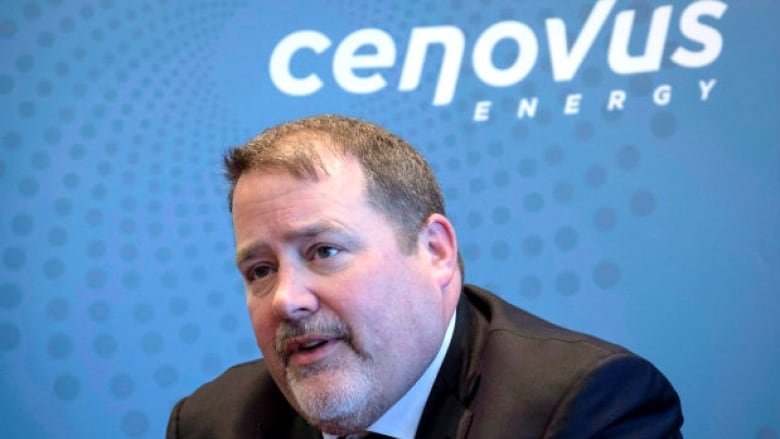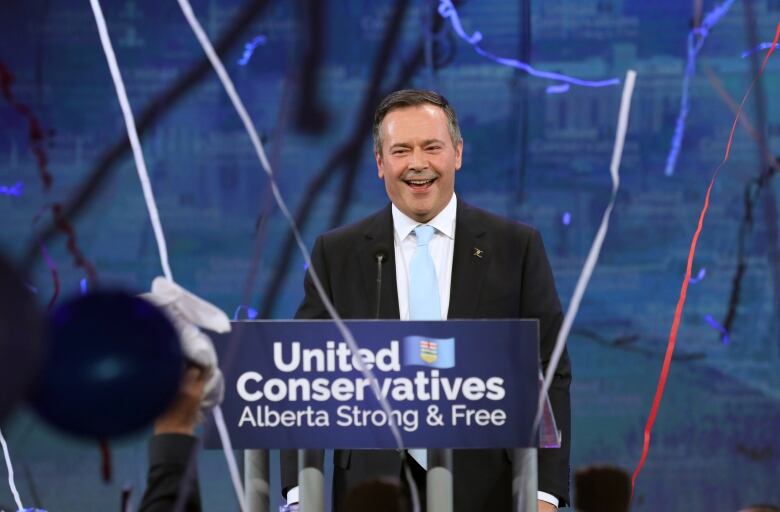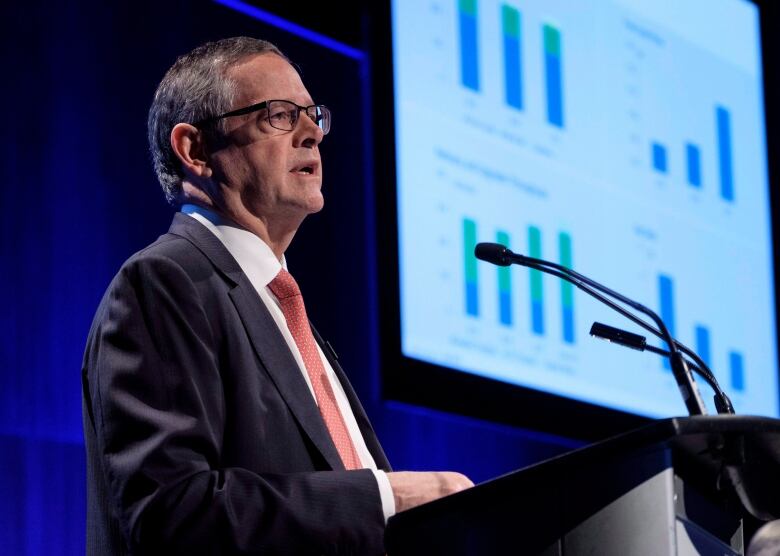Cenovus CEO estimates oil production curtailments will deliver billions to Alberta taxpayers
CEO Alex Pourbaix says NDP's mandatory curtailments was right decision for sector and province

The Alberta government's oil production curtailment program will deliver billions of dollars in benefits to taxpayers this year thanks to stronger crude prices, the chief executive of Cenovus Energy Inc. said Wednesday.
Though acknowledging the NDP decision to enforce mandatory production cuts on the oil industry remains "controversial," CEO Alex Pourbaix maintained Wednesday it was the right decision for the sector and the province.
Pourbaix was one of the most vocal advocates for cuts last fall when pipeline bottlenecks and rising production led to a glut of Alberta crude, steep discounts on regional oil prices and declining government royalties.
Prices for Alberta's heavy crude have improved significantly since mandatory curtailment was imposed in January by Rachel Notley's NDP government, which was defeated by the UCP in last week's provincial election.
In a conference call with analysts on Wednesday, Pourbaix said the production cuts have helped improve the financial situation for his company and the province.
Cenovus reported a profit of $110 million in its first quarter of the year, compared to a loss a year ago.
Pourbaix said the company paid more than $190 million in provincial royalties in the three months that ended March 31. But he said he doesn't mind because the reduction of price discounting of western Canadian oil has more than made up for the five per cent reduction in Cenovus production the program caused.
When the price situation was at its worst in the fourth quarter of 2018, Cenovus had a net royalty credit from the province, he said.
"Our production accounts for only 10 per cent of total oil production in the province," Pourbaix said, adding that means the overall royalty benefit to taxpayers over 2019 could be "eight or 10 or even higher billion dollars."
"If you multiply the net benefits of higher [Western Canadian Select] prices, which are directly related to mandatory curtailment, to our industry's financial performance and to the province's royalty take, and you extend those benefits through the rest of the year, it's crystal clear that temporary mandatory curtailment has been a big win for our industry and for our province."
UCP should continue curtailments, CEO says
He said that provides a good argument for the new United Conservative government, which takes office next week, to continue its initial support of the initiative.
The province declined comment on Wednesday because of the transition in government.

In its quarterly fiscal update in February, however, it almost doubled its estimate of oilsands royalties for the fiscal year ended March 31, 2019, to $3.4 billion from the budgeted $1.8 billion.
The curtailment program which started Jan. 1 was designed to keep 325,000 barrels per day off the market to clear up a glut of oil that had overwhelmed pipeline capacity and lowered prices. It is to fall to about 175,000 bpd by June.
Along with Cenovus, oilsands giant Canadian Natural Resources was among those that supported Notley's decision to enforce temporary production cuts.
The plan has been opposed by producers with Canadian refining operations such as Suncor Energy Inc. and Imperial Oil Ltd. because lower local oil prices resulted in higher refinery profits.

Critics also said the government was unnecessarily wading into the free market and creating long-term investor concerns.
UCP urged to meet with industry over rail contracts
The UCP has indicated it will cancel another NDP plan to add rail assets capable of moving 120,000 bpd of crude starting by the end of the year.
The new government should meet with industry to consider transferring those rail assets rather than simply cancelling the contracts, Pourbaix said later in an interview.
- Oil industry eager to see how Kenney's plan to scrap $3.7B oil-by-rail deal will pan out
- ANALYSIS | It's now Jason Kenney's turn to deliver on jobs, pipelines and a better economy
He said it's vital that rail options are available if curtailments are removed by year-end as scheduled and no new pipeline capacity has been added.
Cenovus is ramping up its own crude-by-rail shipments from between 15,000 and 20,000 bpd in the first quarter to about 100,000 bpd by year-end.
The company reported completing construction of a 50,000-bpd expansion at its Christina Lake thermal oilsands project in the first quarter but said it won't ramp up production there until curtailment is over and there is progress on getting the oil to market.
Cenovus beat analyst expectations with adjusted first-quarter income of just over $1 billion on revenue of $5 billion, compared with adjusted income of $432 million on revenue of $4.6 billion in the same period of 2018.
The beat was driven by higher oilsands prices and better profits due to lower oil feedstock prices at the two U.S. refineries Cenovus co-owns with operator Phillips 66, analysts said.
It posted a net profit of $110 million, compared with a loss of $654 million a year earlier.
Cenovus reported first-quarter oilsands production of 343,000 barrels per day, down five per cent compared with a year ago, while operating costs rose to $9.06 per barrel compared with $8.78 a year ago.
Production from the company's Deep Basin assets averaged 104,000 barrels of oil equivalent per day, down 18 per cent from a year ago due to the sale of its Pipestone business, lower capital investment, natural declines and weather-related outages.
With files from Tony Seskus












_(720p).jpg)


 OFFICIAL HD MUSIC VIDEO.jpg)
.jpg)



























































































